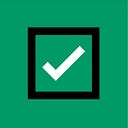By Helen Lyndon

Helen Lyndon is the Postgraduate Programme Lead for the Centre for Research in Early Childhood (CREC) in Birmingham. Prior to this, she taught in primary school education with a specialism in maths, then undertook a Master’s degree in early years education whilst teaching in children’s centres.
You’ve applied, been interviewed and accepted an offer, and it’s not even Christmas — well done! Pop your feet up and relax until next September, right? Well, we wouldn’t begrudge anyone the time to celebrate securing their teacher training place, but if you want to get the very best out of your training year, you should make the most of this valuable preparation time.
All our past trainees will tell you it’s a tough year full of highs and lows, but they’ll also say that the preparation they put in beforehand gave them the confidence and knowledge to overcome early hurdles. Whether it’s developing your theoretical knowledge, expanding your range of classroom experience, or simply ensuring your household finances and childcare are in order, doing a bit of extra prep will help to get you off to the best possible start.
Identifying your own areas for professional development is essential, and most providers will give you some suggestions after interview. At CREC, we give three areas of development to everyone we accept onto our Primary Teacher Training programme to focus on before they start their training.
The three most common areas of development that we encourage our trainees to strengthen are as follows.
Gain additional experience
All ITT courses require you not only to work in two key stages, but also to have knowledge of the key stages before and after your main focus age groups. The subject matter will differ, but the age-related expectations will also have a huge bearing on the way you teach.
The more confident you are in the capabilities and motivations of a three-year-old and a seven-year-old, the more quickly you’ll be able to pitch your lessons appropriately when you start a new placement.
Get to know your key texts
There are many statutory documents and guidance documents that will be repeatedly referred to on placement and on course days. Familiarising yourself with these beforehand allows you to engage more effectively in seminars and start joining the dots between theory and practice.
Whether it’s Development Matters for EYFS, Letters and Sounds, or the Primary National Curriculum you will be grateful you’ve done your bedtime reading beforehand when you can start your course with a solid foundation — not to mention the admiration of your peers when you can decipher one of the multitude of acronyms that are so-loved in education!
We also suggest some key academic texts, including ‘Early Childhood Theories and Contemporary Issues: An Introduction’ and ‘Assessment and Evaluation for Transformation in Early Childhood’, which will support your academic writing and may influence your thinking for years to come.
Study the Teacher Standards
Whether you know it or not, your provider will already have considered your potential against the Teachers’ Standards, and your route to becoming a qualified teacher is dependent on you evidencing your ability to meet them. Get to know them early and you’ll be able to understand the course expectations and stay one step ahead.
If you’re one of the many teaching assistants who decide to make the step into being a teacher, it’s critical you understand the key differences in remit and expectations of your new role. We find, for example, that many long-serving TAs are great with the children but have limited experience of planning, assessment and the wider professional responsibilities. We encourage candidates to be proactive in getting involved and asking their schools if they can shadow teachers before the summer holidays.
Anything else?
Student loan applications, childcare arrangements and travel plans are all ideally sorted well before September, but you also need to think of your wellbeing.
Teaching (and teacher training) is challenging but rewarding, so it’s important to consider how you will relax and recharge so that you can not only get through each term successfully, but also enjoy yourself while you do it!
Whether it’s joining a sports team or exercise class, reading for pleasure or simply taking an hour in the evening to catch-up on your favourite TV programme, find what you like and make it a regular part of your training year.
